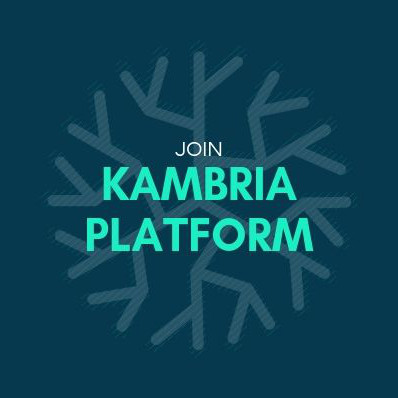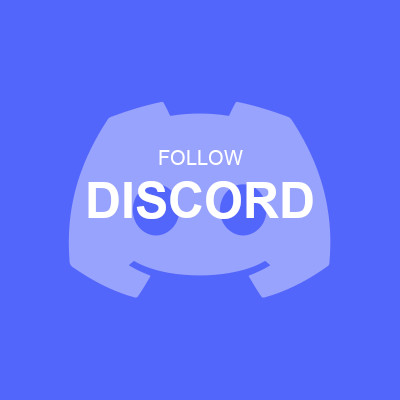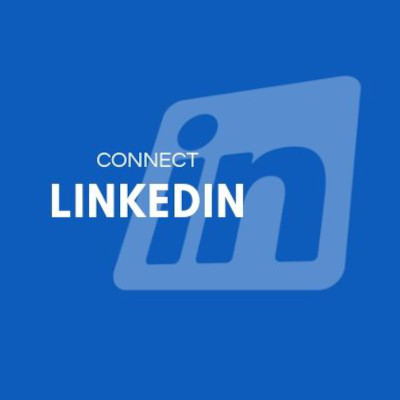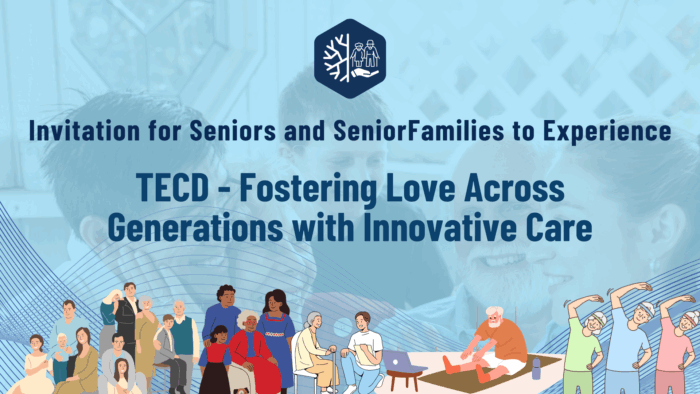Kambria has successfully organized the Kambria’s DAO Experimentation Program (DEP) - Info Session on July 11th, 2025.
In this session, we would like to introduce the program’s vision, structure, and how you can get involved in building meaningful and community-driven DAOs.

Table of Contents
- 1. Program Overview
- 2. What You’ll DO & Learn
- 3. Guest Talk - Voices from Partners
- 4. Panel Discussion
- 5. Community Q&A
- 6. Next milestones and Sincere Thanks
Key Highlights:
- Program Overview
- What You’ll DO & Learn
- Guest Talk - Voices from Partners
- Panel Discussion
- Community Q&A
- Next milestones
Guest Speakers:
- Ms. Grace Rachmany: She is a leading voice in digital democracy, tokenomics, and blockchain governance. She is the co-founder of Sideways.Earth and works with the Design School for Regenerating the Earth. Ms. Rachmany also serves on the Supervisory Council of SingularityNet DAO and co-authored its Blueprint for Decentralization. She supports DAOs through DAOLeadership.com with consulting, workshops, and system design.
- Mr. Mattia Carenini: He is the Global Hubs Director at Matter of Trust, overseeing more than 130 centers in over 50 countries to advance circular innovation and ESG impact. As founder of Matter of Trust Chile and CEO of Matter of Trust Latam, he leads projects in hair recycling and environmental regeneration. Mr. Carenini is also a social entrepreneur and a poet in progress, exploring memory and place through analog photography.
- - - - - 🔹 - - - - -
1. Program Overview
Ms. Lien Cao, CEO of Kambria, opened the Session by sharing an overview of Kambria and the new initiative: the DAO Experimentation Program (DEP).
About Kambria
Kambria is an open innovation platform for Deep Tech - spanning AI, Robotics, Blockchain, VR/AR, IoT, and more. Kambria was founded with the mission to shape the future of technology where innovation is open and contributes more to society.
The platform aims to address the inefficiencies and waste in today’s innovation models by democratizing and decentralizing the ownership, development, manufacturing, commercialization, and enforcement of technologies.
Since launching in 2018, Kambria has implemented 7 initiatives in search of a sustainable model for open innovation. This journey has led to the DAO model, which empowers the community to co-create complete solutions and bring them to life. Along the way, Kambria has had the opportunity to collaborate with partners across diverse sectors.
Kambria remains open to collaboration with anyone who shares the same vision and goals - and as Ms. Lien Cao emphasized, "We want to be your trusted partner too."
About the DAO Experimentation Program (DEP)
Ms. Lien Cao introduced the DAO Experimentation Program (DEP) - as Kambria’s next major step in exploring community-led innovation.
A DAO, or Decentralized Autonomous Organization, is a community that leverages blockchain technology to enable decentralized autonomy. DAOs provide trust, transparency, and automation, allowing communities to co-create open-source solutions and bring them to market.
The DEP is Kambria’s invitation to the global community to:
- Explore how DAOs can solve community challenges
- Prototype how global citizens can co-create
- Generate insights into decentralized coordination and community governance
This program is a shared quest to answer essential questions:
- Can people from diverse backgrounds use DAOs with minimal onboarding?
- Can decentralized teams coordinate effectively to make a real difference?
- Do DAOs foster trust, transparency, and a sense of ownership among members?
- How does DAO participation change perception of blockchain and its possibilities?
Kambria will launch 4 mini-DAOs, each focused on a Community Impact Project, with $3,000 in USDT funding per DAO. Each DAO will consist of up to 50 global participants who will collectively make decisions, manage funds, and implement ideas.
The four DAO projects are:
- Grow Together DAO: Plant 1,000 trees in local communities
- Nourish DAO: Distribute 1,000 nutritious meals to those in need
- Connect DAO: Deliver 500 TECD connection sessions for senior wellbeing
- Reflection DAO: Gather 100+ participant reflections for learning and storytelling
A special note was given to Tech-powered Elderly Care DAO (TECD), which is also fostered by Kambria. TECD is a platform where Seniors can not only chat and share but also explore and practice a wide range of Subjects through 1-on-1 Online Sessions with young people.
Kambria will support each DAO with:
- DAO setup and onboarding
- Project frameworks and facilitation
Participants will benefit from:
- Real DAO experience
- Global networking with fellow changemakers
- DAO proposal-based funding
- Recognition with KAT tokens
- Opportunities for future roles in the Kambria ecosystem
Call for Partners
Kambria is inviting aligned organizations - such as NGOs, DAO communities, and student networks - to join this journey in the following roles:
- Outreach Partner: Help share the program
- Delivery Partner: Support local activities (trees, meals, etc.)
- Knowledge Partner: Help reflect on what’s learned from the program
- DAO Ecosystem Partner: Connect participants to the wider Web3/DAO communities
Ms. Lien concluded by expressing Kambria’s openness and excitement: “Thank you for listening, we would be honored to have your participation in our journey to shape the future of community governance and co-creation.”
Rewatch here:
***
2. What You’ll DO & Learn
In this session, Ms. Hoan Vo from the Kambria team shared a comprehensive walkthrough of what participants will experience throughout the DEP - from how it works to roles, tools, and how to apply.
What Is DEP and How Does It Work?
As previously introduced by Ms. Lien Cao, the program features four mini-DAOs:
- Grow Together DAO
- Nourish DAO
- Connect DAO
- Reflection DAO
Each DAO will receive $3,000 in crypto (USDT), except Reflection DAO, which will be funded with $1,000 - $2,000. Each DAO will host around 50 members, while Reflection DAO expects 20 - 30 members. The program will run over six months.
Key Principles of the Program
Ms. Hoan Vo emphasized three core principles:
- Decentralized decision-making: There’s no central authority. Members submit proposals and vote independently.
- Transparent coordination: All actions and fund uses are documented and reviewable.
- Rewarding outcomes: DEP aims for real social impact - not speculation or profit. Participants’ contributions are recognized with Kambria Token (KAT), as a record of meaningful involvement, not a salary.
Participant Journey
Once selected, participants will:
- Onboard and join a DAO
- Receive onboarding materials
- Set up their wallet
- Choose one of the four DAOs
- Submit or support proposals
- Example: How to plant 1,000 trees, cook meals, connect youth with elderly, etc.
- Example: How to plant 1,000 trees, cook meals, connect youth with elderly, etc.
- Vote on proposals
- All members have equal voting rights
- Approved proposals unlock DAO micro-funding
- Execute and contribute
- Approved actions are carried out by executors, while others can assist with documentation, coordination, or storytelling
- Approved actions are carried out by executors, while others can assist with documentation, coordination, or storytelling
- Report and reflect
Actions are tracked through simple forms, photos, videos, or reflections - Earn recognition with KAT
- Contributions are recorded with KAT based on involvement
- Opportunity to share stories and experiences with the community
Expectations for Participants
Participants are expected to:
- Commit 2 - 4 hours per week during the execution phase
- Attend regular DAO meetings (optional but encouraged)
- Collaborate respectfully across diverse global teams
- Be transparent and honest about successes and challenges
- Reflect openly on outcomes - whether successful or not
DAO Roles and Contribution
DEP uses a flexible role system. Roles are self-selected or team-assigned, and participants can switch between roles:
The 7 Key Roles include:
- Proposer - Submits ideas or initiatives
- Executor - Implements approved actions
- Voter - Participates in decision-making
- Documenter - Tracks and shares evidence of completed work
- Storyteller - Reflects on personal experience and shares stories
- Supporter - Assists others and provides peer support
- Facilitator - Coordinates communication and task flow within DAO
Every action counts more than the title. This system promotes shared learning, co-ownership, and peer collaboration.
KAT Token Recognition System
Each DAO will start with a predefined list of action types and suggested KAT values, but the DAO can propose and vote to adjust rewards.
Example from Grow Together DAO:
- Proposal submission & approval: 15 KAT
- Successfully planting and reporting a tree: 10 KAT
Who Can Join?
Kambria is not looking only for tech or blockchain experts. The program welcomes participants from all backgrounds who:
- Are committed to social impact and community care
- Are open to new ways of working and organizing
- Are eager to collaborate, reflect, and grow
You could be a student, developer, storyteller, local organizer, or from an NGO - everyone is welcome to co-create meaningful impact.
Program Timeline
- May 2025: Program announced
- Now: Application and selection ongoing
- September 2025: Onboarding and orientation
- October - December 2025: DAO execution phase
- October: Begin implementation
- November - December: Deepen impact and capture learning
- January - February 2026: Showcase and wrap-up
How to Apply
- Read the Program Guide - Available on the DEP Doc
- Complete the Application Form - Share your background, interest, and preferred DAO
- Join an Info Session - Open Q&A calls in July
- Selection and Invitation - Participants notified by August
- Onboarding - Receive support for tools and role selection
Tools and Platforms
The program uses the following tools:
- XDAO: Submit/vote on proposals, manage DAO treasury
- MetaMask: Wallet to receive funds and KAT
- Google Drive: Trackers, report forms, photo uploads
- Discord: Main space for communication
Each DAO has a dedicated space on Kambria Discord, including:
- #general-dep: For public discussions and newest updates
- DAO-specific channels: For internal coordination
- Voice channels: For optional sync calls
Peer support is encouraged before escalating to facilitators or the Kambria core team.
Contact & Support
- DAO Discord channels: For peer coordination, reports, proposal guidance
- DAO facilitators: For proposal review, DAO coordination
- Kambria Core Team: For technical issues, KAT tracker problems, and wider program matters
“No matter your background or experience, this is a great opportunity to create real impact in the communities you serve,” said Ms. Hoan Vo. “Apply now - the deadline has been extended to August 15. Don’t miss it!”
Rewatch here:
***
3. Guest Talk - Voices from Partners
Let’s hear our 2 Guest Speakers share insightful thoughts and amazing journeys.
3.1. Mr. Mattia Carenini
Mr. Mattia Carenini is the Global Health Manager at Matter of Trust, a public charity established 26 years ago that focuses on sustainable innovation through community-led action. As a leader within the organization, he has been deeply involved in developing decentralized networks and eco-solutions rooted in local autonomy and global collaboration.
In his presentation, Mr. Carenini shared the mission, structure, and impact of Matter of Trust, as a way to show how similar organizations can join Kambria’s DEP. He highlighted how the organization leverages waste materials, recently human hair, to develop eco-friendly solutions for global challenges such as water conservation, soil restoration, and pollution clean-up. He emphasized the decentralized, open-source nature of their network, and how its community-driven model aligns with the values and vision of Kambria.
Recently, Matter of Trust has run a project transforming human hair and pet fur into three main product lines:
- Absorbents for environmental cleanup (e.g., hydrocarbons, PFAS, coliform in water)
- Evaporation-reducing mulch that helps small farmers reduce water usage by up to 50%
- Fertilizer derived from nutrients in hair to enhance soil quality and plant growth
Beyond their products, what makes Matter of Trust truly distinctive is its decentralized global network of 134 partners in 52 countries, forming a decentralized and non-hierarchical network. Each partner is autonomous but contributes to a shared mission. Matter of Trust acts not as a central authority, but as a facilitator of collaboration and resource sharing.
Organization Core Value
- A core value of the organization is to not use patents. All knowledge and innovations are open and shared among partners. Even business entities within the network are encouraged to participate in this collaborative and transparent model while still being financially sustainable.
- Decision-making is highly localized. Each hub, such as Matter of Trust Chile, has direct contact with its local community and reports back on local needs and solutions. This bottom-up feedback loop ensures that global direction is shaped by real-world, local priorities. The organization likens this to “millions of people deciding where their hair is going to help.”
- The network thrives on collaboration through manuals, interviews, region-based meetings, and an open website. Every partner contributes and has the right to modify shared knowledge, promoting an evolving, co-created ecosystem.
Mr. Carenini also emphasized that the key to growth is trust - not rigid control. This philosophy allows the network to remain flexible, inclusive, and resilient.
Mr. Carenini ended his presentation by emphasizing that Matter of Trust is not about controlling everything from a central office. Instead, it's about building a global community where each member can act independently while staying connected through shared values. Their approach of “scaling with trust” fits perfectly with Kambria’s vision of decentralized innovation. Together, they aim to create a future where environmental and social problems are solved through openness, collaboration, and shared responsibility.
3.2. Ms. Grace Rachmany
Ms. Grace Rachmany is a DAO expert who joined the session to help participants understand what DAOs are, how they work, and what challenges to watch out for. Her presentation focused on both the potential and the reality of DAOs today, highlighting what they can do, where they fall short, and how we can improve them.
She began by explaining the core idea behind DAOs: they are about self-governance. Quoting Mahatma Gandhi - “Good government is no substitute for self-government” - Ms. Rachmany pointed out that DAOs are designed to let communities make their own decisions, instead of relying on a central authority.
Real examples of how DAOs operate:
- Some DAOs vote on technical issues, like changing a cost cap.
- Others hold fun contests, like voting on emojis.
- There are also DAOs that manage tasks and distribute rewards using tools like Dwork, which help track who is doing what and how to pay contributors fairly.
Some DAOs’ Challenge:
- Low voter participation: Even in large DAOs with millions of token holders, only a few hundred people actually vote.
- Token ≠ real participation: Just owning tokens doesn’t mean someone is active in the DAO. Some DAOs try to fix this by separating payment tokens from governance tokens.
- Centralized decisions behind the scenes: Even when a DAO votes, the topics or rules may already be decided by a small team.
- Grant systems can be flawed: In one case, 200+ proposals were submitted. DAOs hired experts to review them, but most voters ignored the reviews and voted for their friends.
- Delegates turn into politicians: When token holders choose delegates to vote on their behalf, those delegates often start speaking vaguely and avoiding clear commitments - just like traditional politicians.
She also addressed fairness and compensation issues in DAOs:
- Writing proposals, promoting them, and attending meetings is often unpaid unless the proposal wins.
- Like gig work, DAO contributors often lack benefits like health insurance, paid leave, or job security.
- She shared an example where a council member got sick, and the DAO decided to keep paying him - but most DAOs wouldn’t do the same.
Despite the challenges, Grace sees real potential in DAOs if we rethink how decisions are made. She encouraged going beyond simple voting - using tools like Pollis (for capturing group sentiment) or AI to understand what people really want. Instead of binary decisions (yes/no), DAOs could aim to co-create proposals that everyone supports - removing the need for divisive votes altogether.
“If you’re here, it’s because you want to create history and shape the future you believe in” - said Ms. Grace Rachmany. DAOs are still evolving, and it's up to each of us to help improve them - not just by building better tech, but by building better communities.
Rewatch here:
***
4. Panel Discussion
In this part, we will listen to sharing related to challenges, lessons, and DAO potential from the two esteemed Speakers.
* Ms. Grace Rachmany - a seasoned advisor and mentor to numerous DAO initiatives - shared her insights on the first question:
“From your experience advising and mentoring DAO initiatives, what opportunities and challenges do DAOs typically encounter in their early stages of development?”
Ms. Rachmany began by highlighting two recurring challenges: who joins the DAO and how to fund early contributors. She explained that in the beginning, a core question is: “How do I pay the first people who join?” These early contributors are often vital to the DAO’s foundation but securing resources to support them can be difficult.
Another key challenge lies in how to distribute power responsibly over time. Ms. Rachmany emphasized that you don’t want to give full voting or proposal power to everyone who joins right away. However, restricting those rights can create barriers to entry and raise questions of fairness.
She offered an example: if she were to join a DAO as an expert, the team might want to give her more opportunity to propose ideas than someone who is new or less experienced. But this could be perceived as favoritism - “Are we favoring Grace over someone else who’s just as passionate or more locally involved?” This brings up the core issue of power dynamics, which are central to the nature of DAOs.
In her view, one of the most important practices in the early stages is to have open conversations about power - who holds it, who manages the treasury, who writes the documents. Even small things, like who writes the meeting summary and who is assigned which action item, are part of how power is distributed.
She concluded that open dialogue about power - both formal and informal - is essential to building a strong, fair, and functional DAO from the beginning.
* Ms. Grace Rachmany also shared insightful answers for a follow-up question on accessibility:
“Many people are excited by DAO principles, but not everyone is fluent in Web3. So, Ms. Rachmany, how can DAO design be more inclusive for people who are not tech-savvy or Web3-native?”
Ms. Grace Rachmany responded with thoughtful honesty, describing the challenge as both real and complex. She acknowledged that Web3 has been around for over a decade, and during that time, more user-friendly tools could have been built - but weren’t, which contributes to its exclusivity today.
She explained that part of the issue lies in the trade-offs between privacy, control, and convenience. For example, Google is convenient, but at the cost of your personal data. Using a traditional bank is easy, but in situations like hyperinflation, governments can take control of your money.
In comparison, Web3 and DAO participation require individuals to take ownership, much like carrying cash in your pocket - which can be messy, risky, and less convenient than just tapping a card. But the messiness is part of the cost of autonomy.
Ms. Rachmany emphasized that if we prioritize convenience, we may end up sacrificing control: our data is owned by corporations, and our finances by central authorities. However, if we want to take responsibility for our decisions, finances, and governance, then some learning and effort is required.
She concluded powerfully:
“If you want to take decisions into your own hands and have a democracy that you believe in, it's work. Freedom is not free.”
This response highlighted the philosophical and practical reality of DAO participation: true inclusivity in decentralized systems may not mean eliminating complexity, but supporting people through it, and recognizing that meaningful freedom comes with responsibility and effort.
* The panel continued with a question for Mr. Mattia Carenini, who brings a strong background in environmental innovation and community engagement:
“What excites you most about joining the DEP program, and how do you envision your environmental work evolving through decentralized experimentation?”
Mr. Carenini shared that he sees this as a new world we are entering, filled with opportunities to rethink how communities are engaged. He acknowledged that while there are many efforts to encourage participation, it remains challenging to determine how much power should be given to individuals or groups, and how contributions are counted or recognized.
Reflecting on his own experience, he noted that just two years ago, his work involved around 30 groups, but now it includes about 700 people. As the scale of impact and community grows, it becomes increasingly difficult to understand and coordinate all those who want to contribute.
In that context, he sees technology as a powerful enabler. With tools like those offered in the DEP program, NGOs and public charities have the opportunity to learn something new and adapt to emerging models of collaboration. He recalled his time at Draper University, a well-known crypto and Web3-focused accelerator in San Francisco, and admitted that before Kambria, he hadn’t fully realized how this technology could be applied to enhance environmental and social impact work.
Now, he believes that the DAO Experimentation Program is a perfect mix of purpose and technology - a unique space where communities driven by shared missions can harness decentralized tools to build stronger, more inclusive movements.
* As the panel drew to a close, Mr. Mattia Carenini was asked:
“If you could give one message to new DEP participants or DAO-curious changemakers, what would it be?”
He shared an honest and motivating response, emphasizing that “the moment to change the way we're doing stuff is today.” He encouraged people to start understanding and engaging with this new way of working - one that isn’t about stepping onto a ship that’s already been built, but rather building the ship together as we sail. This is an opportunity to be part of something that’s still forming, where participants can help define the rules and shape the path ahead. “Here we are trying to facilitate,” he said, “but you have the power to decide where we are going.” He concluded with a heartfelt invitation: “This is the right moment to join this, and I hope you decide to be part of this journey together.”
Rewatch here:
***
5. Community Q&A
During the session, Ms. Mai Phan, one of the facilitators of the DAO Experimentation Program (DEP), addressed questions from the community related to career development and the broader potential of DAO applications.
Question 1: What kind of career growth opportunities can I expect from this program?
Ms. Mai Phan clarified that DEP is not a job or internship program, but rather an opportunity to gain real-world experience and visibility that can significantly support both personal and professional development in several key ways:
- Hands-on DAO experience
Participants will gain practical skills in decentralized governance, proposal writing, budgeting, collaboration, and decision-making - skills that are increasingly relevant in Web3 and innovation ecosystems. - Project-based portfolio
By contributing to real community impact initiatives (e.g., planting trees, organizing events, storytelling, DAO operations), participants will create a public record of their work. These contributions can be showcased on LinkedIn, resumes, or future applications. - Recognition through KAT tokens
Each participant’s involvement is tracked via KAT tokens, which reflect their roles and level of contribution. This on-chain reputation may unlock future roles or opportunities within DAO or open innovation ecosystems. - Access to a global network
DEP provides the chance to collaborate with peers, mentors, and organizations from around the world. Past participants have gone on to co-create new initiatives, join research projects, and even explore DAO-related careers. - Eligibility for future Kambria roles
Active contributors in the DEP may be considered for upcoming roles within Kambria, including facilitation, DAO governance, or project leadership.
In summary, DEP helps participants grow as collaborators, changemakers, and DAO-native leaders, all while building a transparent and meaningful portfolio.
Question 2: Can DAO be used for self-help Apps which provide AI as Buddies and help people become better versions of themselves?
Ms. Mai Phan confirmed: Yes, a DAO can absolutely support projects like AI-powered self-help Apps - particularly those focused on collective wellbeing, peer support, and personal growth.
She outlined several ways DAO can support such initiatives:
- Community-driven design
Instead of decisions being made by a single company, DAO members - including users, advisors, and contributors - can vote on which features to prioritize, such as emotional check-ins, journaling tools, or productivity support. - Shared ownership
People who contribute to training the AI, improving functionality, or promoting the app (e.g., through feedback, prompt design, or content translation) can earn tokens and participate in governance. - Transparency & trust
DAO tools can ensure transparent tracking of decisions, data practices, and updates - an essential factor for mental health or personal development tools where trust is critical. - Open innovation
A DAO can fund and experiment with different self-help tools - from AI companions to reflection apps and habit trackers - with shared learning and community feedback.
She also highlighted that Kambria is already exploring this model through the Tech-powered Elderly Care DAO (TECD), which integrates AI support for elder wellbeing. TECD is experimenting with features like AI companions, activity suggestions, and emotional support - showing how DAOs can empower communities to co-create AI apps for empathy, care, and everyday life.
Rewatch here:
***
6. Next milestones and Sincere Thanks
The milestones for our journey include:
+ The application deadline is August 15, 2025.
+ For upcoming phases:
- Onboarding & DAO Setup: September 2025
- DAO Execution: October - December 2025
- Showcase & Next Steps: January - February 2026
You can read more details in the Program Timeline: https://kambria.io/docs/dep/program-timeline/
Thank you once again to all our guests and participants for joining us - your presence and insights made the session truly meaningful. We’re excited for future collaborations and invite you to stay connected on the Kambria Discord for updates and continued conversation. If you have any questions or thoughts, feel free to reach out. Until next time, take care and goodbye!
Rewatch here:








